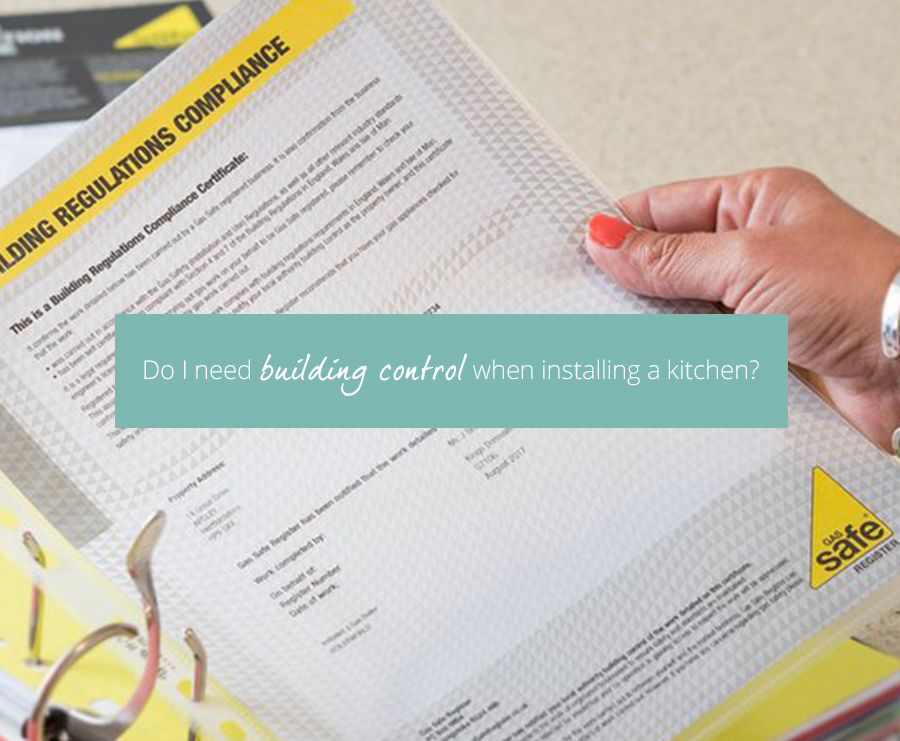Do I need building control when installing a kitchen?
Building control can be confusing and, as a result, can often be overlooked. Official approval is required from the authorities for certain work or projects undertaken in and around the home. It is so important, in fact, that there is a whole law surrounding it. Unfortunately, if it is ignored you could get prosecuted and fined. Your local authority could make you pay for faulty work to be fixed and, without approval, you will not have certificates of compliance which you may need when it comes to selling your home.

Best to do research up front and get it right from the start – as the saying goes, short term pain for long term gain!
Building control is required for an extension or a new build but it is also required for less obvious projects such as exchanging fuse boxes, replacing windows, and installing a kitchen if it involves plumbing work.
What exactly is building control?
It is a service designed to protect health and the safety of your home. It is based on Building Regulations, which means it is a legal requirement to comply and is enforced by your local council’s building control officers. It applies to all aspects including foundations, structural elements, and ventilation. It also applies to heating, plumbing and electrical work. In the case of larger projects, new builds, extensions etc regular site visits by officers ensure that construction is progressing safely and complies with the law.

The law sets out regulations on how much you can construct or change certain elements of your home. It is the homeowner’s responsibility to check if approval is required before undertaking any work to make sure than any major changes comply. If you are using a trade registered with a competent person’s scheme, then the scheme’s installers can self-certify their works showing that it meets building standards. They will also inform your local authority on your behalf and issue a certificate of compliance. If your chosen company is not registered with one of these schemes, then you will need to arrange any inspections.

How do these regulations affect kitchen projects?
If you are simply replacing units, worktops, and appliances in your current kitchen, then building regulation approval is not required. However, if you are relocating your kitchen or adding a new one, then it is. Any major electrical work will need to conform to building regulations to ensure complete safety and protect individuals from fire as well as electric shock. Any work that alters existing drainage systems will also need to comply. Ensuring that there is enough ventilation is another key area.

How much does it cost?
If you do need approval, you can either use your council’s service or an independent assessor. Any charges are set independently dependent on type of project. In the case of new builds and extensions this is often based on the floor area, but this is rarely the case for smaller kitchen projects.
For further clarification, visit https://www.gov.uk/building-regulations-approval
The Compare Network
Copyright – Insight Retail Group Ltd 2025 All rights reserved